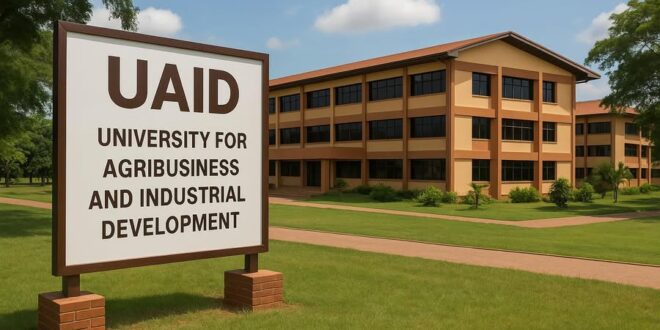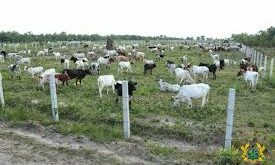As Ghana intensifies efforts to industrialize its economy and build inclusive prosperity, it is time to rethink the geography of higher education. The proposed University for Agribusiness and Industrial Development (UAID) in Techiman, Bono East Region, is more than an academic investment—it is a bold strategy to decentralize opportunity, empower rural youth, and unlock the vast potential of middle Ghana.
Techiman: A Metropolitan Epicenter of Opportunity
Techiman’s status as a Metropolitan Municipality and the commercial capital of the Bono East Region is no accident. With a combined population of over 500,000 people from Techiman Metropolitan and Techiman North District, the area is one of Ghana’s most densely populated and economically vibrant zones outside the capital regions.
Located at the intersection of Ghana’s major transportation corridors, Techiman is a strategic agri-trade hub connecting the food baskets of the north to the markets of the south. Yet, despite its growing population, economic significance, and strategic location, the area lacks a public university to support skills development, research, and innovation tailored to its needs.
The Public University Advantage: Engine of Local Development
Public universities are not merely centers of learning—they are catalysts of transformation. Their establishment in underserved regions triggers a cascade of long-term socio-economic benefits, including:
• Human Capital Development: Local students gain access to affordable, quality education without relocating, increasing enrollment and reducing brain drain.
• Job Creation: Universities create direct employment for academic and non-academic staff and stimulate indirect jobs in construction, transportation, housing, food services, and retail.
• Innovation and Research: Public universities serve as engines of research that can address local challenges in agriculture, industry, health, and climate resilience.
• Urban Growth and Infrastructure: University presence accelerates urban development—leading to improved roads, utilities, housing, and digital infrastructure.
• Community Empowerment: Through outreach, incubation hubs, and technical support, universities empower local entrepreneurs, farmers, and small businesses to thrive.
These benefits are well-documented globally—and Ghana is no exception. The growth of Cape Coast, Tamale, and Ho into regional academic cities stands as testimony to how higher education can elevate entire communities.
Why UAID, and Why Now?
The University for Agribusiness and Industrial Development is purpose-built for Ghana’s current economic priorities. Its academic focus will align with national goals around:
• Agribusiness and value addition
• Industrial transformation and automation
• Agricultural finance and digital innovation
• Technical and vocational education
• Rural entrepreneurship and inclusive job creation
UAID will host interdisciplinary schools including Agribusiness and Agricultural Economics, Industrial Sciences, Digital Economy, and Innovation. This specialized approach will create graduates who are not only job-ready but capable of transforming raw produce into high-value goods and services.
Techiman Is Ready
Techiman’s rapidly growing population, thriving market systems, and strategic location make it a natural home for UAID. As a metropolitan center with a diverse and youthful population, it offers a strong foundation for building a future-facing university that serves Ghana and the West African subregion.
A Sustainable Investment in National Growth
The proposed funding model for UAID is blended and sustainable, drawing from government allocations, GETFund, development partners, and private sector contributions. The university will also generate internal revenue through tuition, short courses, and research commercialization.
Conclusion: Laying the Foundations for Ghana’s Next Growth Chapter
The establishment of UAID in Techiman is not just a proposal, it is a strategic imperative. It addresses critical gaps in access to tertiary education, responds to national development priorities, and positions Bono East as a new engine of economic growth.
We call on the Ministry of Education, Parliament, and all development stakeholders to endorse and accelerate this initiative. With UAID, we are not only building a university, we are building Ghana’s future from its heartland.
By:George Antwi-Boasiako
BA, MSc, MSc (Economics, M&E, Development Finance)
0244016046
Source: Ghanaweb.mobi
 Home Of Ghana News Ghana News, Entertainment And More
Home Of Ghana News Ghana News, Entertainment And More




